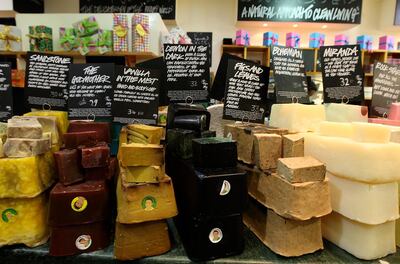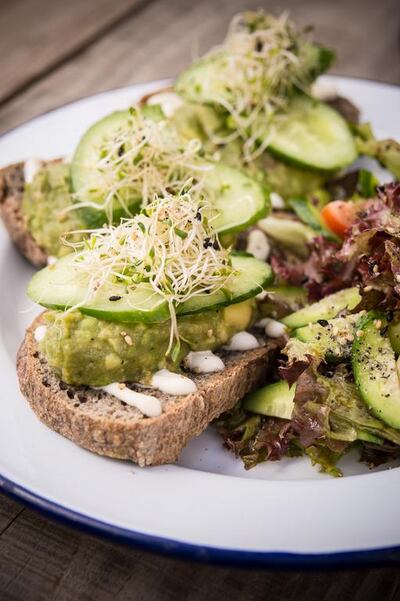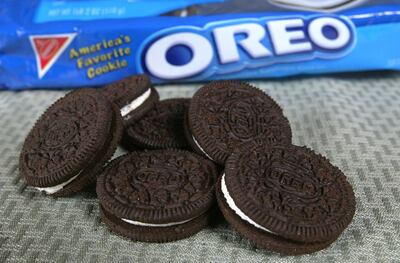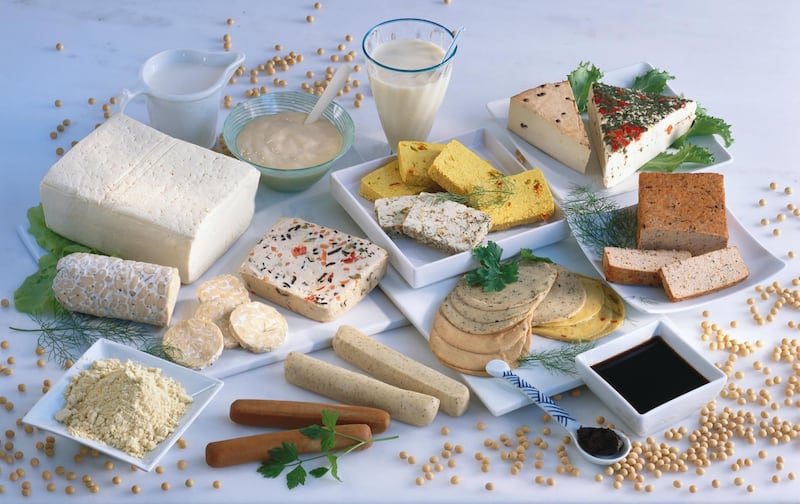If you thought going vegan – whether it's for health, environmental or animal rights reasons – was trendy last year, just wait until you see what this year holds. Forbes has declared 2019 the year veganism goes mainstream. The Economist said it's the "year of vegan". Meanwhile, in the United Kingdom, Veganuary – a charity that helps people try out a plant-based diet throughout January – exploded. It first launched in 2014 with 3,300 people, and 250,000 people have signed up this year. On December 27 alone, 14,000 people made the pledge – a rate of one every six seconds.
The numbers don't lie – 2019 could well be the year you seriously start considering a vegan diet. Or, at least, it might be when you start learning more about it so you don't embarrass yourself at the dinner table next time you're sat beside a herbivore by asking, "But where do you get your protein from?"
‘Plant-based’ and ‘vegan’ are two different things
You can be plant-based without being vegan. The former refers to your diet, while the latter is a lifestyle. Most people focus on the food, but if you’re truly dedicated to being an ethical vegan, then you need to think beyond your plate. Do you wear leather? Are there feathers in your pillows? Do you wear pashminas? Do you put honey in your tea? Was your lipstick tested on animals? Does that nail polish you use contain crushed beetles? As you can see, there’s a lot to think about, but don’t let that overwhelm you. Take it step by step, which brings us to our next point...

You don’t have to go vegan overnight
For some people, an all-in approach works best. But for most, it’s better if you take it in steps. Even if you start by cutting out meat a few times a week, you’re making a difference. Becoming vegan is often a journey and a massive learning curve. The best way forward is to learn as you go.
Vegan foods are not more expensive
Meat is expensive. Cheese is costly. Vegetables, fruits, beans and grains are among the cheapest items in the supermarket. You can make many things yourself, too, such as nut milks. It's the generally unnecessary speciality products that'll set you back. If you want nutritional yeast, Beyond Burgers or vegan cheese and you're on a budget, buy them sparingly and make them last.
Plants cannot feel pain
We’re sorry to burst your bubble, but this is not an argument against veganism. Plants don’t have a brain or a central nervous system so they do not feel pain in a way we understand or recognise. Yes, they are alive and there have been interesting scientific studies into the inner life of flora – their response to stimuli, senses, even behaviours – but there is nothing to suggest they feel pain. The fact is, animals definitely do feel pain, and yet we still kill billions every year to fill our plates.
Protein is not an issue
Any vegetarian or vegan will understand the pain of being asked, "But where do you get your protein from?" It's strange how everyone becomes a concerned amateur nutritionist overnight after you begin to avoid animal products. The good news, folks, is that plants have protein, too. From broccoli to brown rice and baked beans, a plant-based diet is packed with high-quality protein sources and it's very, very difficult for us to run low. Vegans do need to take a B12 supplement or eat foods that have been fortified with the vitamin (plant milks or cereals, for example), but technically everyone should be wary of running low, especially those who have trouble digesting properly (such as celiac disease sufferers) or anyone over the age of 50.
Going vegan is not a cure-all
Veganism has many health benefits. People who adopt a plant-based diet often say how much energy they have, and how much weight they've lost. Blood pressure drops, cholesterol levels decrease significantly and, according to some studies, fatal diseases can be dodged and even be reversed. Some vegans report mental health boosts, too. There's no doubt that diet is a powerful tool and we've only just begun to unlock its benefits. But it's not a cure-all. We still need to work with our doctors and take western medicine, if necessary. Kids can still contract diseases they haven't been vaccinated against. And some things are just genetic and no amount of superfood salads or bright green smoothies are going to help.

Avocados may well not be vegan
To understand the great avocado debate, you need to know that ethical vegans pass on products that both come from and are made by animals. So, if someone boycotts honey, which involves bee labour, then they might want to rethink their stance on eating avocados, too. It turns out migratory beekeeping methods are used to ensure many of our favourite fruits and vegetables are pollinated, particularly in the US. Almonds are also farmed this way, as well as apples, blueberries, cucumbers, pumpkins and tangerines – to name a few. We need to be sensible and practical about this, though. There's a limit to how many restrictions we can put on our diet in a non-vegan world. As People for the Ethical Treatment of Animals (Peta) told The Washington Post: "Average shoppers can't avoid produce that involved migratory beekeeping any more than they can avoid driving on asphalt, which has animal ingredients – but they can save nearly 200 animals' lives every year by choosing plant-based foods."
Oysters may well be vegan
Clams, mussels, oysters, scallops: bivalves divide vegans. The argument is, they have no brain (in the way we understand it) and they have a very simple nervous system. We know bivalves show defensive behaviours – for example, scallops can detect movement and “swim away” from predators, while clams can burrow in sand – but the question of whether or not they feel pain in a way we understand and recognise it (just like with plants) remains unanswered. Peta argues that we don’t need to consume them to survive. “Is the flavour of Oysters Rockefeller or New England Clam Chowder so important to us that we can’t give these animals the benefit of the doubt?” Others say we need to draw a line somewhere. Essentially, it’s up to you to do your research and decide where you stand on this.
Vegan cheese is a work in progress
Plant-based dairy and meat alternatives are improving all the time and, as with milk, can be even better than the animal product. But vegan cheese is not quite there yet. Many vegans agree that the award-winning Violife Foods' cheeses are best (find these in BiOrganic and Lulu Hypermarket in Dubai, or Souq Planet in Abu Dhabi). But don't expect it to be an exact replica. We recommend venturing into the world of artisanal dairy-free cheeses. A Dubai company called Pure Vegan Love creates some delicious varieties – from a Brie-style cheese to smoked "cheddar" and aged options – using nuts, seeds and grains, and incorporating local flavours such as za'atar.
It’s easier to eat out as a vegan than you think
In the past year alone, the number of vegan options on restaurants' menus across the emirates has grown exponentially. You'll also often find that dishes are vegan by default, as many world cuisines lend themselves nicely to the diet. For example, Middle Eastern food has an abundance of plant-based options, from falafel to foul and fattoush. Indian food is another example – just make sure you ask for your dish without ghee, a form of clarified butter (most places happily oblige). If there really is nothing on the menu, most chefs are willing to whip up something tasty for you (it's usually a tomato pasta or mushroom risotto). The easiest thing to do is call ahead and make sure you'll be catered for.
_________________________
Read more:
Why this meat-eater is taking part in Veganuary 2019
The new restaurants, food trends and culinary controversies in Abu Dhabi and Dubai
Chef Giorgio Locatelli: ‘You can have a delicious meal without meat and fish’
It's never been easier to eat local in the UAE
_________________________
You can get kids excited about veganism, too
One vegan staffer at The National says his six-year-old son loves the fact that daddy eats like a brachiosaurus. The coolest and biggest dinosaurs were vegan. Elephants, rhinos, pandas and even certain types of iguanas are herbivores, so you can inspire your kids by regaling them with tales of the coolest creatures in the animal kingdom. Also, as many school garden projects show, kids love growing fruits and vegetables. If you include your children in the process of growing and / or cooking your food, you'll soon find them getting excited about vegan mealtimes. Fair warning: sending vegan kids to birthday parties might be an issue. Would you stop them from eating the cake?

Going vegan does not automatically make you an eco-warrior
Here are a few recent stats for you: meat and dairy use 83 per cent of the world's farmland, and if everyone stopped eating those products that could be reduced by 75 per cent – an area equivalent in size to the United States, China, Australia and the European Union combined. This is according to a 2018 study, published in the journal Science, led by Joseph Poore from the University of Oxford, UK. He said: "A vegan diet is probably the single biggest way to reduce your impact on planet Earth." But here are a few more stats for you: there is an estimated 150 million metric tons of plastic in our oceans right now, according to non-profit Ocean Conservancy. Deforestation produces an estimated 24 per cent of global greenhouse gas emissions, states the Earth Day Network. Human-caused climate change contributed to a 40 per cent decrease in giraffe populations, the International Union for Conservation of Nature reported. Basically, if you're vegan but still happily stockpiling plastic bags, enthusiastically munching on avocados imported from Mexico, and driving a gas-guzzling SUV every day, then you're still contributing to the planet's ever-quickening decline.
Not all vegans want to talk about being vegan
“How do you know when someone is vegan? They’ll tell you.” It’s the ultimate poke, and we’re tired of hearing it. Most of us just want to get on with our lives peacefully. We don’t want to tell you what to do, or engage you in some kind of existential (or nutritional) debate. And we certainly don’t want to make you feel bad about yourself. The subject is bound to come up from time to time, but rest assured, our food choices have nothing to do with you and many of us long for the day it doesn’t warrant further discussion.
There’s no such thing as a perfect vegan
Vegans are trying to do their bit – for the animals, the planet and themselves – but they're not perfect (no matter what they say). Animal products sneak into the most surprising corners of our lives and, when all is said and done, we live in a non-vegan world. Will we refuse to sit on our friend's leather dining chairs? What does one do when presented at Christmas with a woollen jumper hand-knit by their gran? Every day, these kinds of ethical dilemmas crop up and vegans are just a bunch of people trying to navigate them as best they can while keeping their sanity intact.

Vegan or not?
Five foods that are surprisingly free of all animal products, and five products that shockingly aren’t
Oreos – vegan
The popular biscuits are made entirely with plant-based ingredients. Although the makers cannot guarantee they haven’t come into contact with milk at the factory, so it’s up to you to decide how you feel about that.
Lotus biscuits – vegan
The crunchy caramelised biscuits are indeed vegan. As is the moreish Biscoff spread (unless it’s the one that has chocolate in it).
Hershey’s Chocolate Syrup – vegan
It’s certainly not healthy, packing in plenty of high fructose corn syrup, but it’s definitely vegan (and tasty).
Popcorn from the UAE’s cinemas – vegan
Don’t be put off by the yellow tint of the salted popcorn at Reel and Vox cinemas in the UAE. There’s no butter – you have to pay extra for that. You can opt for the caramel variety, too.
Sour Patch Kids – vegan
Many gummy-style sweets contain gelatin, so they’re not even vegetarian never mind vegan. But Sour Patch Kids get the A-okay from Peta
Salt and vinegar Pringles – not vegan
Yes, these crisps contain milk. Why? No idea. You’ll get to realise that A LOT of foods unnecessarily contain milk when you start reading the labels.
Worcestershire sauce – not vegan
This one’s not even vegetarian, but not many people know that. Worcestershire sauce contains anchovies, so if you’re pescatarian you’re fine. Vegan and vegetarians should pass on it (and watch out for dishes that contain it, too).
Red-dye products – not vegan
Carmine, the red dye often used in sweets, is made by boiling crushed cochineal insects with sodium carbonate or ammonia. It’s used in everything from pie fillings to strawberry milk and fizzy drinks, as well as red lipsticks and eyeshadows.
Marshmallows – not vegan
Similar to jelly sweets and chewing gum, marshmallows contain gelatin. You can get vegan varieties these days, however, so you don’t have to give up on s’mores.
Apple juice – not vegan
Some apple juices are clarified using fish bladders or gelatin, in the same way that some beers and wines are. Peta’s website has a list of brands that are vegan-friendly.







